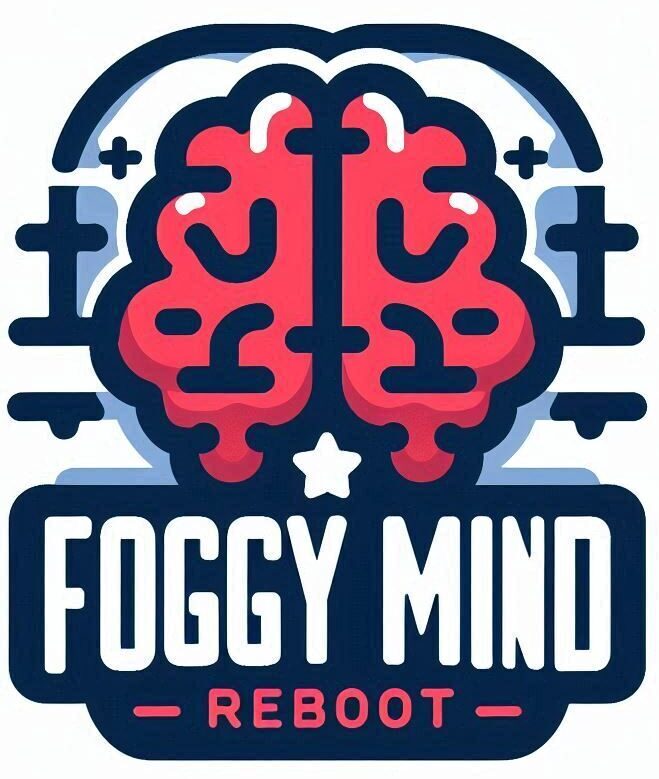
How to Combat Brain Fog: Diet, Lifestyle, and Medical Solutions
Introduction: Understanding Brain Fog
Brain fog can feel like your mind’s stuck in a haze, making it tough to focus, remember things, or stay mentally sharp. It’s like having mental cobwebs that won’t clear up, no matter how hard you try. This cognitive state affects more than just your productivity—it impacts your daily life, relationships, and emotional well-being.
So, what exactly is brain fog? It’s more than just feeling tired. It’s when your thinking, focus, and memory are affected, leading to forgetfulness, difficulty staying on task, or slower mental processing. Recognizing these early symptoms can help you take action to clear up the fog and regain mental clarity.
In this guide, we’ll explore common causes of brain fog—diet, lifestyle habits, and medical factors—and actionable steps to clear the mental cobwebs.
Diet and Nutrition: Fueling Mental Clarity
What you eat directly affects how your brain functions. Just like a car runs best on premium fuel, your brain performs optimally when it receives the right nutrients. A balanced diet rich in vitamins, minerals, and antioxidants can keep your mind sharp, while deficiencies in key nutrients can lead to cognitive slowdowns and brain fog.
Key Nutrients for Mental Clarity
- Vitamin B12: Vital for memory retention and cognitive function. Deficiency can lead to poor focus and forgetfulness.
- Iron: Low iron levels can cause fatigue, impairing your ability to concentrate.
- Omega-3 Fatty Acids: Essential for brain health, these are found in fatty fish and support cognitive functions like memory and focus.
If you’re low on these nutrients, you may notice slower thinking, increased forgetfulness, and persistent mental fog.
Foods That Can Trigger Brain Fog

- Processed Foods: High in sugar and unhealthy fats, these foods can spike blood sugar levels and lead to mental fatigue.
- Caffeine and Alcohol: While caffeine might give you a short-term boost, too much can lead to jitters and reduced focus. Alcohol, especially in excess, can impair cognitive function and contribute to brain fog.
Brain-Boosting Foods to Incorporate
To fuel your brain for optimal performance, incorporate these nutrient-rich foods into your meals:
- Fatty Fish (salmon, mackerel): High in omega-3s for memory support.
- Leafy Greens (spinach, kale): Packed with antioxidants to reduce brain inflammation.
- Nuts and Seeds: Rich in vitamins and healthy fats that support cognitive function.
Supplements for Mental Clarity
If it’s hard to get enough nutrients from food, supplements can help. Consider omega-3 capsules, vitamin B-complex, and iron supplements to fill any gaps. Always consult your healthcare provider before starting any supplement regimen.
Lifestyle Habits and Their Impact on Cognitive Function
Your daily habits—especially sleep, physical activity, and stress management—play a crucial role in maintaining mental clarity. Here’s how you can optimize your lifestyle to fight brain fog.
Sleep: The Brain’s Recharge
A consistent sleep schedule is essential for mental clarity. When you’re sleep-deprived, your brain struggles to function properly, worsening brain fog symptoms. Aim for 7-9 hours of quality sleep per night.
Tips for Better Sleep:
- Stick to a regular sleep schedule.
- Create a calming bedtime routine (e.g., reading, dimming lights).
- Limit screen time before bed, as blue light can disrupt sleep patterns.
Physical Activity: Boosting Brain Function
Regular exercise improves blood flow to the brain and releases endorphins, which enhance mood and cognitive function. You don’t need to hit the gym every day—even a brisk 30-minute walk can improve mental clarity.
Exercise Tips:
- Incorporate movement into your day, like walking or yoga.
- Try to fit in both aerobic and strength-training exercises.
Stress Management: Clear the Mental Clutter
Chronic stress elevates cortisol levels, which can impair brain function over time. Reducing stress is key to maintaining mental sharpness.
Stress-Relief Practices:
- Meditation or deep breathing exercises.
- Mindful activities like yoga or journaling.
- Take regular breaks from work to avoid burnout.
Organization: Decluttering Your Mind
Staying organized helps reduce mental overload. Use planners, set reminders, and break down tasks into smaller steps to keep focus and reduce stress.
Medical Conditions and Medications: The Hidden Culprits of Brain Fog
Sometimes brain fog is linked to underlying medical conditions or medications. Chronic illnesses like hypothyroidism, diabetes, or autoimmune disorders can disrupt cognitive function and lead to mental fog.
Medical Conditions to Watch For
- Hypothyroidism: An underactive thyroid can slow down your metabolism, causing fatigue and brain fog.
- Diabetes: Fluctuations in blood sugar levels can impair cognitive function.
- Autoimmune Disorders: Conditions like lupus or multiple sclerosis can impact brain health and lead to mental fog.
If you suspect an underlying medical condition is contributing to your brain fog, consult a healthcare provider for a thorough evaluation.
Medications That May Contribute to Brain Fog
Certain medications can affect your cognitive abilities. Common culprits include:
- Antidepressants
- Antihistamines
- Blood pressure medications
If you notice brain fog after starting a new medication, consult your doctor about possible side effects or alternatives.
When to See a Doctor
If brain fog persists despite lifestyle changes, it’s essential to seek medical advice. A doctor may run tests, including blood work and neurological exams, to pinpoint the root cause. Early detection can prevent the condition from worsening and guide effective treatments.
Takeaways for Clearing Brain Fog
- Prioritize Nutrition: Ensure your diet is rich in brain-boosting nutrients like omega-3s, vitamin B12, and iron.
- Tweak Your Lifestyle: Improve sleep, stay active, and manage stress to maintain mental clarity.
- Monitor Medications and Health: If lifestyle changes don’t clear up brain fog, consult a healthcare provider to check for underlying medical conditions or medication side effects.
By taking these steps, you can clear the mental haze and regain your focus, memory, and sharp thinking.
FAQs About Brain Fog
Q: How long does brain fog last?
A: Brain fog can last from a few days to several months, depending on the underlying cause. Addressing dietary deficiencies, improving sleep, and managing stress are key to shortening its duration.
Q: Can brain fog be a sign of something serious?
A: Yes, persistent brain fog could indicate underlying medical conditions like thyroid disorders or autoimmune diseases. If brain fog continues despite lifestyle changes, see a doctor for evaluation.
Q: Can supplements cure brain fog?
A: Supplements can help if the brain fog is due to nutrient deficiencies, but they should complement a balanced diet and healthy lifestyle. Always consult with a healthcare provider before starting any supplements.
By addressing the root causes of brain fog, from nutritional deficiencies to medical conditions, you can take actionable steps toward mental clarity.
Click here for “Complete Support For Healthy Memory, Concentration And Mental Acuity”
Here’s a little transparency: Our website contains affiliate links. This means if you click and make a purchase, we may receive a small commission. Don’t worry, there’s no extra cost to you. It’s a simple way you can support our mission to bring you quality content.”
4o
